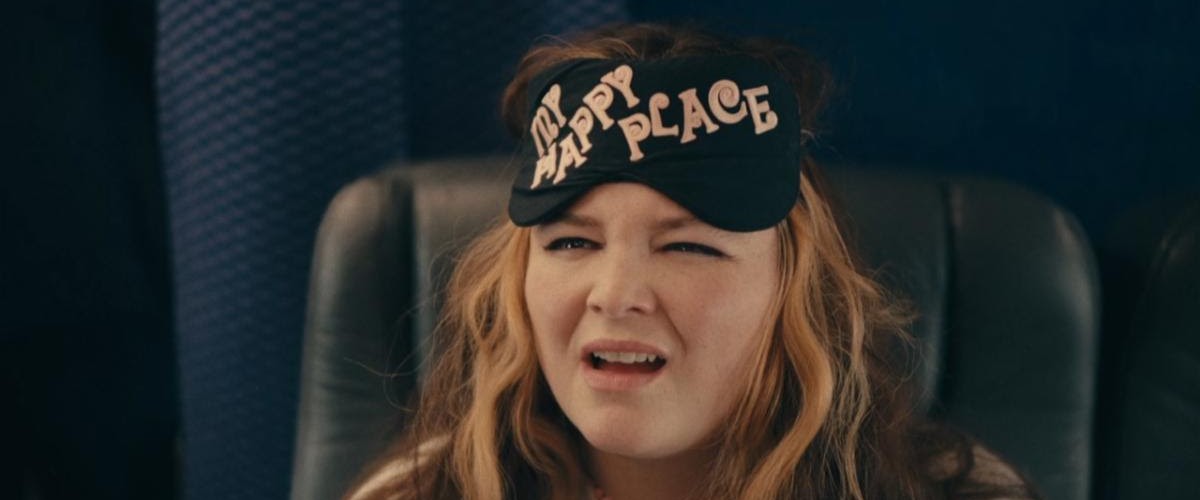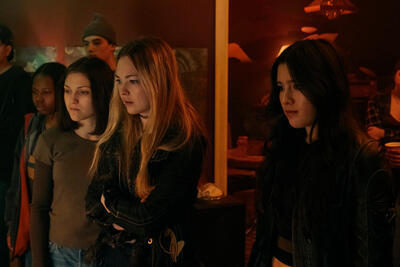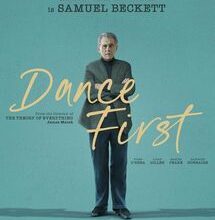
Cora Bora
Cora Bora

Now streaming on:
JustWatch
“What is wrong with you?” multiple characters ask titular heroine Cora (Meg Stalter), a floundering LA-based indie musician who is hanging on by a very thin thread, constantly pulled down by her deep, traumatic wounds, which she barely masks via ironic songs with titles like “Dreams Are Stupid.”
“Cora Bora,” written by Rhianon Jones and directed by Hannah Pearl Utt, is designed to showcase Stalter’s signature brand of absurd irony. The comedian broke out when videos she posted on social media during quarantine in 2020 went viral, leading to supporting roles on shows like “Hacks” and in indie films like “First Time Female Director,” “Sometimes I Think About Dying,” and “Problemista.” These projects offer her singular persona in small, digestible doses. For fans of her schtick, her first leading role will likely be a treat; for everyone else, their mileage with the film will vary depending on their tolerance for the thick layer of winking irony in which Stalter surrounds Cora.
“All who wander are definitely lost,” Cora croons while playing her acoustic guitar in small clubs and coffee shops around the city. What we know about this lost soul is that something bad happened a while ago, definitely related to her music. She used to be in a band called The Maybe Nots, but why exactly they no longer play together is withheld from the viewer until almost the very end of the film. Whatever happened, Cora left her hometown of Portland – and her girlfriend Justine (Jojo T. Gibbs) – and has been struggling ever since. Cora says they’re in an open relationship, which allows her to use casual sex as a coping mechanism for the unrevealed trauma she carries with her.
Just when things can’t seem to get much worse, Cora’s agent drops her to move to Austin and open a microbrewery with her fiancé, and during a video call, Cora begins to suspect Justine has another woman in her life. On a whim, Cora hops a plane to Portland, her guitar in tow, to win the love of her life back. When she tries to sneak into first class, she meets cute with a handsome stranger named Tom (Manny Jacinto), who will of course pop up throughout the film when she needs him. Jacinto is one of the most charming actors currently working (see, “The Good Place”), yet Hollywood has yet to figure out what to do with him. Because the film is so committed to being a character study of Cora, Tom’s appearances are scattered throughout, and Jacinto and his charm are once again sorely underused.
Once in Portland, Cora discovers her girlfriend lives with a woman named Riley (Ayden Mayeri), who is tired of Justine’s inability to fully break it off with this hot mess. After causing a scene at a party thrown for Justine’s grad school graduation and Riley’s birthday, Cora takes their dog Taco with her for some midday beer. She gets into one distinctly Portland-esque misadventure after another, including running into a frenemy at the liquor store, smoking pot with some strangers in their car, and a Tinder hook-up that almost becomes a polycule orgy. Like the earlier scenes set in L.A., these sequences walk a thin line between being a scathing critique and reverential celebration of the flighty hipster culture the film portrays.
The way these vignettes are structured in which Cora has long, somewhat philosophical conversations, often with strangers who will not reappear in her life, reminded me at times of Agnès Varda’s “Vagabond.” Cora, like Sandrine Bonnaire’s Mona, becomes more and more resolute in her nihilistic behavior and denial of her trauma after each encounter. This being an American indie film, the ending is far less bleak and more naively hopeful than Varda’s masterpiece of despair. Instead of leaning into Cora’s darkest thoughts, she eventually has a moment of resolution where she (literally) confronts her trauma, wraps up her baggage with Justine, patches things up with Riley, and possibly starts something new with Tom. It’s all a little too neat for how messy everything was leading up to this saccharine conclusion.
The aim here is to show that Stalter is an actor capable of greater depth, and in the scene in which the traumatic event is finally revealed, she proves as much. Unfortunately, it was too little and too late to foster the desired effect. Cora never becomes more than a sketch of a person. Another character that might have worked in a short video aimed to be consumed on social media but remains largely one-note when stretched out for the length of a feature film. But the camera loves Stalter, and she surely has the “it” factor. She just needs a filmmaker and material that will push her further out of her persona. Maybe then, we’ll get a better idea of what she can really bring to the screen.

Marya E. Gates
Marya E. Gates is a freelance film and culture writer based in Los Angeles and Chicago. She studied Comparative Literature at U.C. Berkeley, and also has an overpriced and underused MFA in Film Production. Other bylines include Moviefone, The Playlist, Crooked Marquee, Nerdist, and Vulture.
Now playing

STAX: Soulsville, USA
Matt Zoller Seitz

Bodkin
Kaiya Shunyata

In Our Day
Glenn Kenny

MoviePass, MovieCrash
Clint Worthington

Handling the Undead
Katie Rife

You Can’t Run Forever
Brian Tallerico
Film Credits

Cora Bora (2024)
92 minutes
Cast
Megan Stalteras Cora
Jojo T. Gibbsas Justine
Ayden Mayerias Riley
Chrissie Fitas Cristina
Andre Hylandas Jeremiah
Director
- Hannah Pearl Utt
Writer
- Rhianon Jones
Latest blog posts

Introduction to Black Writers Week 2024

Understanding Grief in Rural Canada Through Hulu’s Under the Bridge

Co-Productions within Africa and its Diaspora Can Encourage Self-Reliant and Sustainable Film Economies

Film Festivals: A Place For Found Family & Cultivating Community
Comments
comments powered by Disqus



